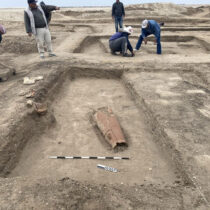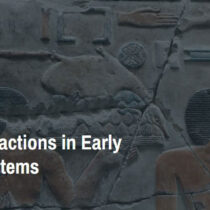Mythical matriarchy was succeeded in Athens by a state of patriarchy. Various institutions give evidence for the inferior position of women in classical society. The abandonment of newly born children occurred more often in the case of girls than of boys. Even when she got married, a daughter could never “pay back” all the expenses her father had gone to for her. A law permitting a father to sell his daughter as a slave, if she was a
spinster, was abolished by Solon. Athenian girls were married at the age of fourteen to fifteen years to men twice older that them. Confined to the women’s quarters of her house a married woman was obliged to encounter only persons of her close family environment. Only the women of the poorer social class could contribute, in a way, to their home’s finances by selling home-made goods or agricultural products in the market-place or by working in the family fields. According to a well-known passage from Demosthenes, an Athenian man had the licence to have three women. A wife, to give birth to his legal children, a concubine, to take care of his body and a hetaera for his physical and mental pleasure. A marriage could be dissolved either because a husband dismissed his wife (in this case he had to give back all her dowry) or because the wife abandoned her marital relation or, finally, because the wife’s father took her away from her husband for various reasons. The receival of a dowry excluded women from participating in the proper division of their father’s property. An orphan only daughter had to marry her closest male relative so that her property would remain in the family. Even if the only daughter was married but childless, when becoming a heiress, she could be taken away from her husband by her closest relative. The relation to concubines was a kind of marriage that was, however secondary. This becomes obvious from a law attributed to Drakon, according to which the man who found his concubine having sexual intercourse with another man, had the right to kill the latter, like the husband who was entitled to kill his wife’s lover. However, children born to concubines were considered illegitimate.
The hetaera was a companion with whom men usually had a friendly relation of a more or less spiritual character, therefore this relation was completely different from the one men had with their wives or prostitutes. Women were not allowed to participate in the political life of their city or town; they were not considered to be citizens, but only inhabitants of a community.
The women of Athens were nothing more than an obedient, passive and inferior medium for the reproduction of citizens or a vessel of mental and physical pleasure in the absolute service of the men who ruled the city as if it was a men’s club.

